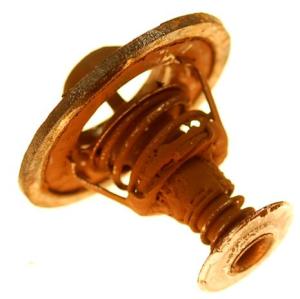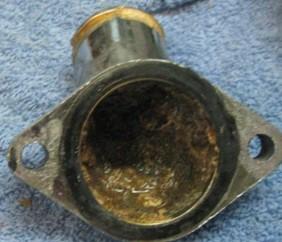Use Antifreeze in your cooling system summer and winter ! – Why you might ask?
One main point to remember when considering your vehicle cooling system is that modern engines use a range of materials now. Some of which are more susceptible to corrosion than others. Corrosion is a common denominator in reducing cooling system efficiency by means of cooling fluid contamination and blocking the inner bores of cooling pipe work and water jackets, hence reducing efficiency.
Making sure that you’ve got the correct anti-freeze in the right concentration is critical to the health of your engine.
Cooling capacities of modern vehicles are generally smaller, operate at higher temperatures and pressures and therefore require more maintenance to ensure efficiency is maintained.
Approximately 60% of engine failures can be attributed to cooling system problems.
As a rule of thumb, only about 28% of the thermal energy released by burning fuel in the engine is available for driving the car.
- About 7% is used to overcome friction in the engine, drive train, tyres etc.
- Another 35% disappears out of the exhaust, and
- The remaining 30% has to be removed by the coolant or the engine block, otherwise internal components would start to suffer overheating, rapid wear and fatigue, leading to failure.
Antifreeze is multi-functional and vital to the correct operation of the engine. A modern coolant/antifreeze needs the following features:
- Corrosion prevention
- Excellent heat transfer
- Protection from freezing
- Prevention of scale build up
- Compatibility with hard water
- Stability at high temperature
- Compatibility with plastics and elastomers used in the engine
- Low foaming
So as you can see with so many functions to perform it is very important to the maintenance and health of your engine to regularly check the ratio of water to antifreeze in your system
Bluecol – Recommended Antifreeze 5L
Every couple of years it is also a good idea to flush through the coolant system, this is especially important if you buy a second hand car and have no idea when the coolant was changed last
Wynns 56064 325ml Radiator Flush – Recommended Coolant System Flush
Its also important to remember that any antifreeze added to your system should be to the specification stated by the vehicle manufacturer.
Ethylene glycol is a product of the petro-chemical industry and is used as the basis of antifreeze, this has the added advantage of raising the boiling point of the cooling mixture. More recently propylene glycol has been introduced as a less hazardous alternative to ethylene glycol.
The important recent technical advances have been in the field of corrosion prevention, hard water compatibility and control of scale build up.
Engine design has changed to improve fuel efficiency and lower emissions as well as reducing weight and costs. These demands have made engine operating conditions even more severe, so that much more is required from the cooling system.
Leak free coolant systems are a must as almost all modern cooling systems run under pressure, once this pressure is reduced the coolant may boil at a lower temperature.
On this note any system that has developed any leaks must be rectified as soon as possible.
K-Seal recommended permanent coolant system leak repair.
It is generally recommended that a mixture of between 40 & 50% Antifreeze to water is used for summer coolant and winter freezing prevention. Coolant systems are “sealed” generally and should not need topping up, however if water levels in the coolant tank are noticed to be reducing then it is important to inspect the system for leaks. Also important to check is if the coolant mixture is cloudy or “sludgy” as this may also indicate issues of combustion gases / oil getting into the cooling system via a cracked block or head or head gasket leaking problems. Get it checked out asap.
National standard for antifreeze are – BS6580:2010 or ASTM D 3306 and such fluids should provide a basic level of performance for cars and light vans.
New developments in cooling technology has led to the introduction of Organic Acid Technology (OAT). Corrosion inhibitors in OAT products last much longer in use than those in traditional antifreeze and that is why many service specifications only require coolant fluid changes are completed every 5 years now.
On a final note, water quality in certain areas vary tremendously still. There are areas that are known as being “hard water” areas and this can affect the performance of your vehicles coolant system – think about the furring of your kettle element or washing machine elements.
To finish; a few points to look out for concerning your cooling system.
All above pictures point to poor coolant system operation and in some instances major engine faults.
- See the thermostat – top left covered in corrosion deposits that could render it inoperable.
- Top right small corrosion showing on radiator – this may only be a small “pin” hole in the radiator and not noticeable or indeed affect the operation of the system until it is up to working temperature.
- Third image – the thermostat housing sludged up with “gunk” reducing the bore size for cooling fluid to flow through.
- The last one at the bottom – radiator header tank overflowing with brown sludge – a sure indication that oil or combustion vapours are entering the coolant system.
Dont forget – here at FLASH CUSTOMS – we can custom make alloy water pipes, alloy radiators and supply silicon hose kits and parts to make up smooth bore, high flow cooling systems, for fast street and race use.
Hope this blog has been of some use to you, thanks for reading 🙂
Recommended sites












its didnt tell me not once in this article why antifreeze is important.
sorry but it clearly states some bullet points as to what benefits antifreeze offers
Thanks. very helpful
at least thats 1 we have helped, thankyou.
I \was doing some research, and your article was very helpful and concise. However, when you give statistics or data; you didn’t cite anything. One way to make this piece extremely credible, is to include fact-based citations referring to where “Approximately 60% of engine failures can be attributed to cooling system problems.” comes from. Otherwise, you are just spouting off numbers, which would make this nicely written piece…crap. Sorry so blunt,
Ellroy
Thanks for your constructive critisism
does antifreeze help to make the heater in the car warmer?
Unfortunately not Helen, sorry